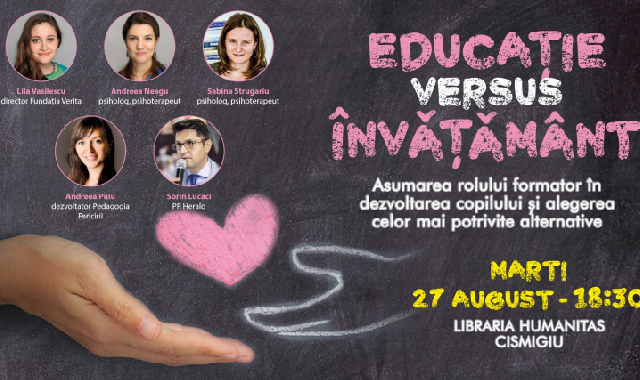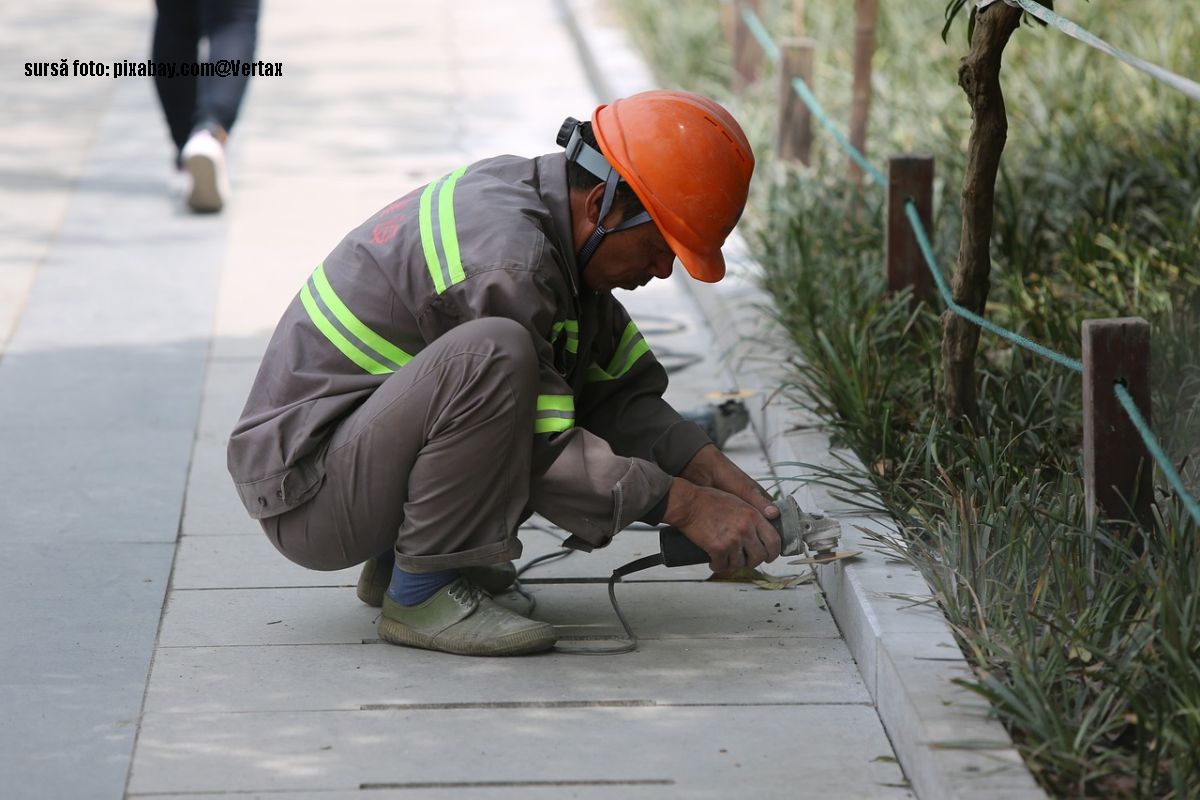Education vs. Learning
A recent debate tackled some of the problems of formal education

Monica Chiorpec, 20.09.2019, 19:50
Education and picking the most
suitable tuition alternatives for children are topics of major concern for
Romanian society. At global level, the education system tends to be exhausting
for both teachers and parents, pushing children away from schools. The mere
transmission of information does no longer comply with the demands of the new
generations, while formal education seems to widen the gap between education
institutions and students.
The Humanitas Cismigiu Library in
Bucharest recently played host to a debate aimed at providing answers to all
the important questions related to education, addressing both students and
parents alike. Lila Vasilescu, the director of the Verita Foundation, told us
about the increasingly visible contrast between formal and informal education.
I’ve tried to observe where
these discrepancies stem from and why, when we talk about formal education. The
problems are there, and the students and teachers are starting to resist this
system more and more. As a teacher, I have to admit that my focus was initially
on the children, the teaching itself and the curricula. It didn’t take me long
to realize that, in fact, to be able to reach these children, we have to first
reach the adults that surround them.
Children today more often than not
seem not just overwhelmed by the vast curricula, but also trapped in a system
that does not allow them to know their own intellectual abilities. This is
something both tutors and parents have acknowledged. Lila Vasilescu.
We have to first start
working with the teachers and parents, encourage them to try to simplify
things, return to a simple way of doing education. The starting points should
be basic needs, science and common sense. I too have recently felt trapped in
this whirlpool of information charging at me from everywhere, in my desire to
absorb as much information as possible. All information is useful, of course,
but at one point you realize you are revolving around the same things. It’s
easy to get lost in this wealth of information.
How do we choose the best education
option for our children? Andreea Puiu, a teacher and developer with Pedagogy
of happiness explains.
Whenever I choose something,
I always focus on personal happiness, because this is what matters most.
Whenever we choose something for our family in terms of education, it’s
important to stand by our children and support them as parents, see how they feels,
what their needs and interests are. This way we can support them in later life
as well. It’s hard to support a kid who is disappointed or angry and feels we
don’t identify with his feelings. As tutors, it’s important to be on a par with
our students, observe their gestures and reactions, the way they perceive us.
I’ve seen many schools and realized that each class has its own model of
happiness.
To what extent is society concerned
with the impact of education? Sabina Strugariu is a psychiatrist who believes a
happy life is based on the integration of future adults in society.
Competitiveness is one
of the main forms used to compel children to do certain things, by comparing
them to others. It’s always hard to build a better world if you always look out
for your peers. It’s not something material, not even spiritual. To be able to
live a happy life, you need to integrate. Children must know who they are and
mind their surroundings. If you teach your child to cherish money or
reputation, you won’t have the time to look around and see who you are, what
your talents and aspirations are. This is a major problem, and unfortunately,
the education system is promoting it. Everyone learns the same things at the
same pace.
How much is education concerned
with the child’s own abilities? Psychologist Andreea Neagu.
Whenever I interact with
a child I try to ascertain his strengths. Even in parental counseling sessions,
in class, when I teach or in my cabinet, I try to help him see the good in him.
To get there, however, they need a long process of self-learning. From where I
stand, the global trend is to help children benefit from this process as part
of the formal education they get. This is why international education systems
have introduced social or emotional education classes, where children get to
learn about themselves, thus helping them learn about others as well.
In recent years the public
education system has introduced personal development classes for the primary
education grades. Children can thus get to know themselves and their peers,
starting from identifying emotions, seen as an important step towards emotional
intelligence.
(Translated by V. Palcu)






























